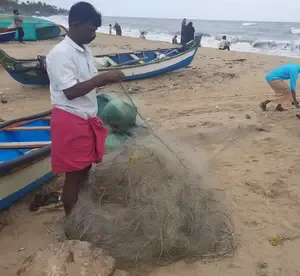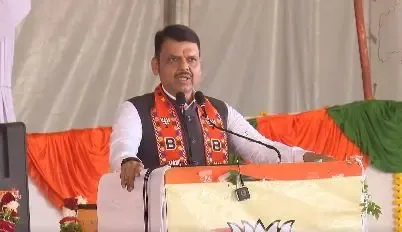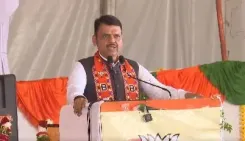Preparations Intensify for the 5th National Marine Fisheries Census

Synopsis
Key Takeaways
- 5th National Marine Fisheries Census scheduled for November and December 2025.
- Approximately 1.2 million fisher households to be surveyed.
- CMFRI and FSI leading the data collection efforts.
- Advanced digital tools will be utilized for efficient data gathering.
- Significant for policy-making in marine fisheries management.
Kochi, April 12 (NationPress) Preparations are accelerating for the 5th National Marine Fisheries Census (MFC 2025), set to take place in November and December of this year. This significant census is anticipated to encompass approximately 1.2 million fisher households throughout India’s coastal regions and union territories.
Funded and orchestrated by the Department of Fisheries under the Ministry of Fisheries, Animal Husbandry and Dairying, this initiative falls under the Pradhan Mantri Matsya Sampada Yojana (PMMSY).
The ICAR -- Central Marine Fisheries Research Institute (CMFRI) will act as the main agency for executing the census across nine coastal states, while the Fishery Survey of India (FSI) will be responsible for data gathering in the union territories, including various islands.
This census aims to accumulate extensive demographic and livelihood information pertaining to marine fishing communities, alongside infrastructure specifics such as fishing vessels, gear, harbours, fish landing centres, processing units, and cold storage facilities.
Neetu Kumari Prasad, Joint Secretary in the Department of Fisheries, Government of India, recently evaluated the progress, prerequisites, and schedule of the census. The meeting emphasized the necessity for tight collaboration between state governments and implementing agencies to guarantee its success.
State fisheries departments have pledged their full support to this initiative, promising assistance in aspects such as finalizing village lists and providing manpower and logistical resources.
Prasad highlighted that MFC 2025 will signify a major transformation in data collection, incorporating advanced digital tools like mobile-based applications, geo-tagging, and real-time data validation.
She stated that the census would be vital for evidence-based governance, livelihood planning, and sustainable marine resource management.
Dr. Grinson George, Director of CMFRI and National Coordinator for MFC 2025, mentioned that this census would produce essential data to guide policy-making in marine fisheries management, welfare schemes, and infrastructure development—directly influencing millions reliant on the marine sector.
The meeting also covered the deployment strategy and tailored data collection timelines. Local enumerators from marine fishing villages will be involved in this endeavor, with support and supervision from regional, state, and district-level coordinators.









